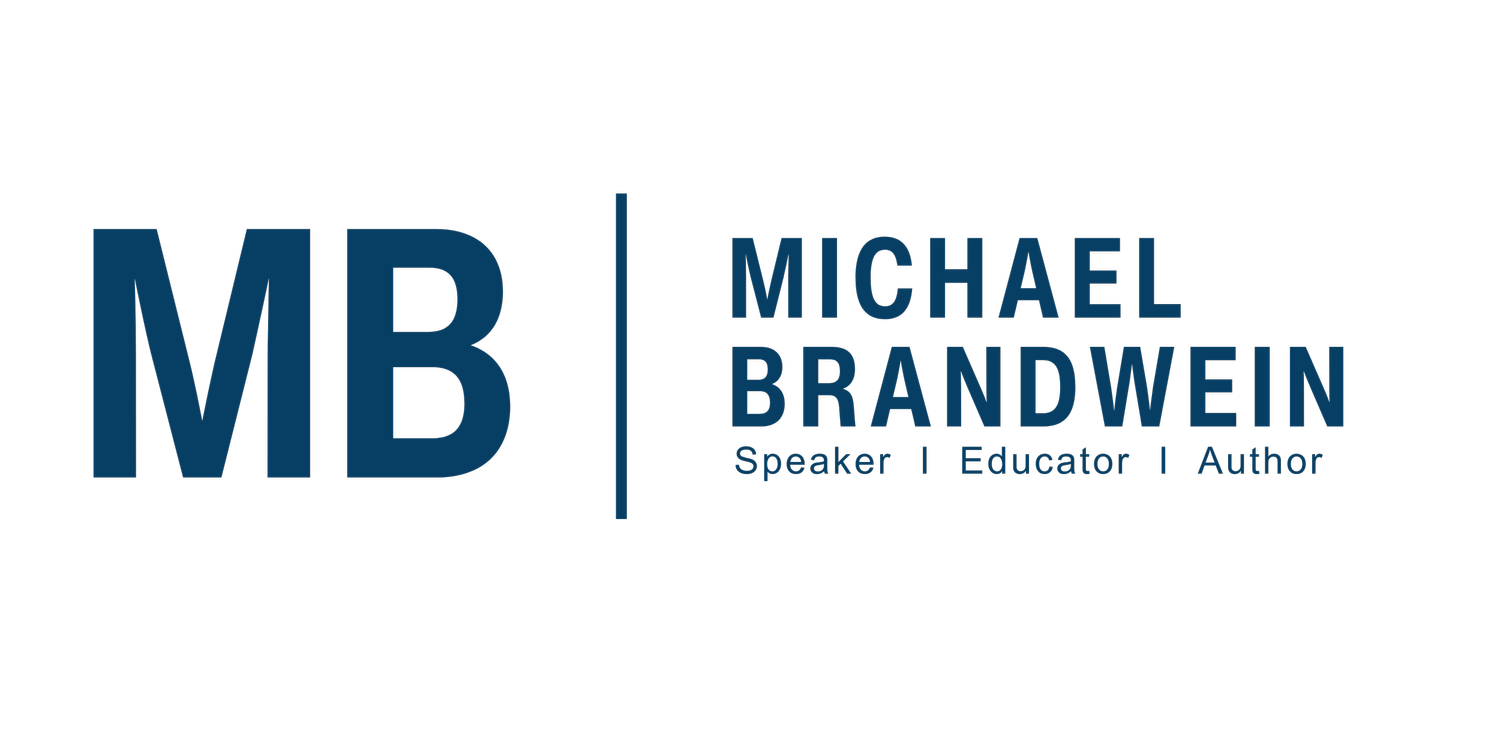Presentations for Parents & Caregivers
There’s no “theory” in these sessions—they are packed with practical, specific, and original skills that participants will take home and use right away. And they are taught in Michael’s highly entertaining, interactive, and motivating way. Michael is a speaker—but he knows it’s listening that makes great presentations. He will be delighted to reach out personally about customization.
Please contact him so he can learn how to best meet your needs.
Jump To:
Presentations
01
TALKING IT OUT: Superb Communication Skills to Build Positive Relationships, Model How to Express Feelings, and Facilitate Problem-Solving
This is the number one most requested session Michael presents for parents and caregivers. When we say, “I understand” or “I hear you,” how do we make sure they believe us? Based on Michael’s three Emmy® award-winning programs for public television stations across the U.S., this fast-paced, skill-boosting session demonstrates his inventive, highly effective techniques that use listening to build stronger relationships and positive connections with young people, while teaching them essential skills for success in life.
This is not “theory” — you will use these tools immediately and every day. The big bonus: You will also find this greatly helpful in all the relationships in your life.
You Will Learn and Practice:
Using listening to build positive connections with young people so they really feel heard, understood, and valued, even when we disagree
How to teach them to express their feelings respectfully and clearly, including hard ones such as anger, disappointment, lack of confidence, and fear
Helping them learn how to solve problems and conflict by talking it out
How to reduce tension and increase cooperation
Parent Comments
“This was an absolutely FANTASTIC, fabulous presentation! Very entertaining and extremely helpful and informative!”
“You’ve made an incredible difference in the way I’ll help my 4 children grow. I’ll never forget what you’ve done for us!”
“The best I’ve ever been to! It was so much fun to laugh and learn t the same time. Fantastic! Wonderful!”
Not only educational and inspirational, but fast paced and entertaining. A wonderful speaker. The humor he injected into his presentation really made the evening fun. This will help build trust and open lines of communication between us and our children.”
“Michael Brandwein is a dynamic, sensitive man who revitalized my enthusiasm, my joy, and my belief
in children....!”“Extremely knowledgeable, informative and experienced -- he genuinely loves kids, and it really shows.”
“Held me spellbound every minute.”
“Life-saving!”
02
GROWING GREAT QUALITIES IN KIDS: The L.A.S.E.R.B.E.A.M. Technique to Developing Outstanding Character, Social-Emotional Skills, & Bringing Out the Best in Young People
Based on Michael’s best-selling book, this exciting, original session demonstrates exactly what to say and do to develop outstanding character, social-emotional skills, and life skills in young people.
Saying “Be nice!” and “Show some respect!” doesn’t work. Michael’s warm, positive, highly acclaimed L.A.S.E.R.B.E.A.M. Technique has been taught to tens of thousands of youth leaders, teachers, recreation and out-of-school program leaders, youth professionals, parents, and others throughout the world. No “theory.” These are practical, hands-on skills that can be used immediately every day.
You Will Learn and Practice
How to identify exactly what behaviors we want to develop in young people and how to use positive communication and modeling to teach them
The three-step DLP approach: Get beyond, “Good job!” to provide credible and useful feedback and praise that teaches not only teaches that we value certain behaviors, but also why we do
Developing outstanding behaviors that demonstrate great character traits and qualities such as kindness, persistence, teamwork, confidence, responsibility, respect, and other keys to lifelong learning and success.
03
“WHY DON’T YOU BEHAVE?!” — The Brandwein Key System Solution to Handling Negative Behavior in Young People
When a young person says, “You can’t make me!” or “They did it first!” do we and staff know precisely how to reply? When facing bullying, put-downs, teasing, and whining, what must we do immediately instead of just saying, “It’s not allowed!”? Most important: Do we know how to respectfully get young people to listen the first time? What do highly credible adults do and say to build that trust?
Michael’s Key System demonstrates practical tools that have been praised nationally for answering these questions with skills that will be used right away.
The most challenging thing we must learn when raising great young people is how to handle undesired behavior, and this skill-packed, energetic session is highly popular because it makes this easier and ensures success with practical tools that fill in the gaps in other approaches — particularly in boosting our credibility and being much more specific about how to teach what we want young people to do to replace ineffective behavior.
You Will Learn and Practice:
Michael’s original and creative techniques — his Key System — in three clearly explained steps to handle behavior with greater confidence, calmness, and expertise
Four specific skills to show that we mean what we say about behavior expectations
The big secret to teaching young people positive choices that replace negative ones
How to reduce stress and increase confidence while growing relationships that support good choice-making
““Participant comments included, ‘This was absolutely one of the best, probably the very best presentation I have ever seen.’ • ‘The best workshop I have ever attended. It gave me lots of “tools” to use.’ • ‘This was one of the best and most helpful things from the entire conference.’””
04
Practical & Powerful Techniques to Teach Problem-Solving, Responsibility, Resiliency, & Independence to Young People
More teachers, youth leaders, parents, and others report that today’s young people of all ages need even greater support in learning how to be independent and handle challenges. This session demonstrates Michael’s special three-step C.D.C. technique to help young people think more for themselves, with greater confidence.
You Will Learn and Practice:
Exactly what to say and do to help young people learn how to solve problems, handle mistakes and challenges, and get what they need with greater independence, resiliency, confidence, and calmness
How to reduce whining and increase critical thinking skills
Teaching young people the specific “language” to use and questions to ask that lead to effective, persistent problem-solving
Reducing “rescuing” of young people and increasing the use of daily—but often “invisible” — opportunities to practice responsibility skills


